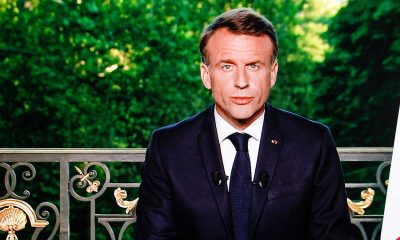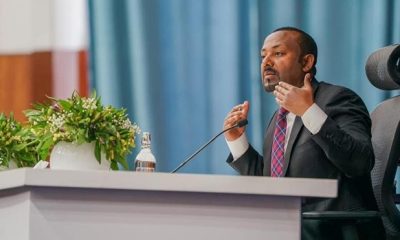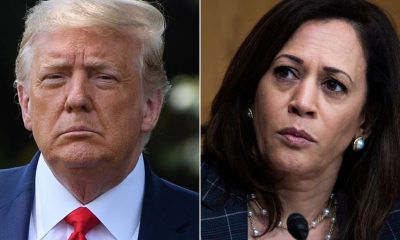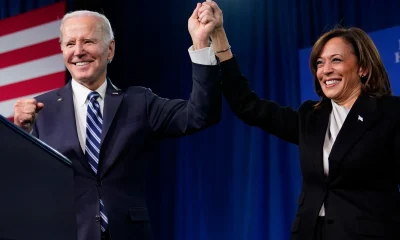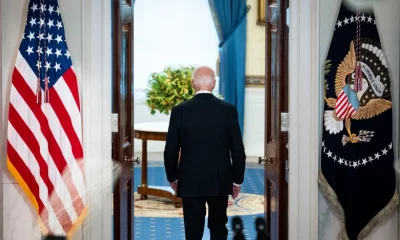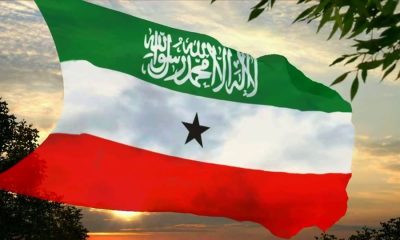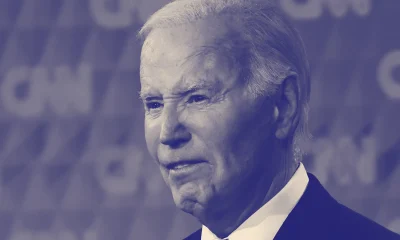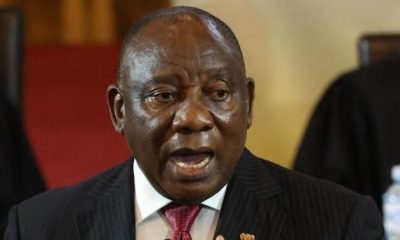Africa
Somaliland’s Tribal Power Struggle: Wadani vs. KAAH
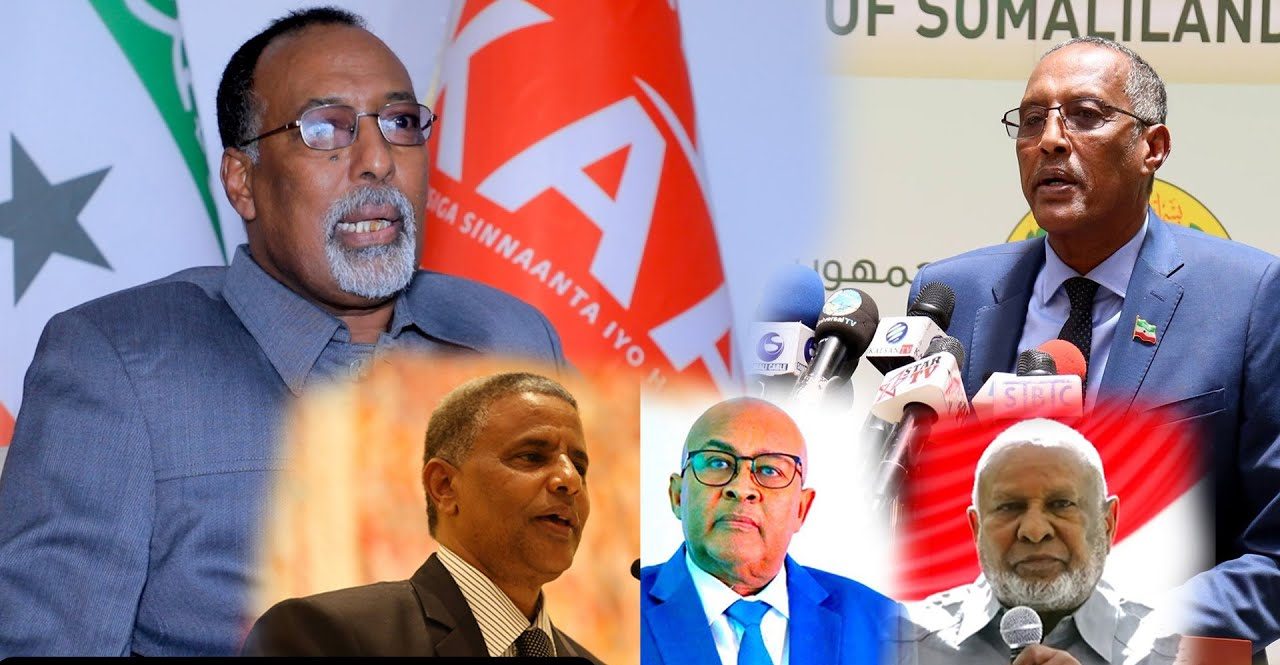
How Clan Loyalties and Traditional Leaders Threaten the November 2024 Elections –
In a shocking turn of events, Somaliland is witnessing a disturbing regression into tribal politics as it gears up for the November 2024 elections. What was once a beacon of hope for democracy in the Horn of Africa is now at risk of being overshadowed by the sinister influence of clan loyalties and traditional leaders. The upcoming elections, rather than being a celebration of democratic progress, are turning into a tribal showdown that threatens the very fabric of Somaliland’s hard-won peace and stability.
The recent clash between KAAH chairman Mahmoud Hashi and Wadani party candidate Abdirahman Cirro over the Habarjeclo votes has laid bare the ugly reality of Somaliland’s political landscape. This isn’t just a political disagreement; it’s a struggle for tribal dominance that is eroding the democratic principles Somaliland has strived to uphold.
Imagine this: after decades of fighting for independence and building a semblance of democratic governance, the people of Somaliland now find their fate being decided not by the ballot box, but by traditional clan elders. These elders, particularly from the Habarjeclo tribe, have blatantly disregarded Somaliland’s electoral laws, crafting new rules that serve their interests and sidelining the nation’s constitution. This brazen power grab is nothing short of a betrayal of the people’s trust and a mockery of their democratic aspirations.
The complicity of legislative councils and the senate, dominated by Habarjeclo figures, in this travesty is particularly egregious. They have not only sanctioned this illegal takeover but actively participated in it. This scandalous subversion of democracy is a stark reminder of how fragile Somaliland’s political system remains. The upcoming elections, instead of being a beacon of democratic progress, risk becoming a farce dominated by tribal allegiance.
Let’s be clear: this isn’t just about political maneuvering. It’s about the future of a nation and its people. The orchestrated push by traditional Habarjeclo leaders to monopolize political power and exclude other parties from the presidential race on November 13, 2024, is a direct assault on the multi-party system. This system, which allows for political plurality, is being systematically dismantled in favor of tribal hegemony. The exclusion of the Horseed and Hilaac organizations and the aggressive stance of the Wadani party only exacerbate the situation, creating an atmosphere of tension and instability.
What is perhaps most alarming is the silence of Somaliland’s educated elite and those in top positions. Their acquiescence—or worse, their complicity—in this regression into tribalism is a betrayal of their responsibilities. How can these leaders, who should be the vanguards of democracy, remain silent as the nation teeters on the brink of tribal anarchy?
The spectacle of three politicians from the Habarjeclo tribe—Mohamed Kahin of Kulmiye, Hirsi Haji Ali of Wadani, and Mahmoud Hashi of KAAH—competing for their tribe’s votes is a damning indictment of Somaliland’s political landscape. This internal feud, framed as a struggle for tribal dominance, is a disgrace to the democratic ideals that Somaliland purportedly upholds.
The people of Somaliland deserve better. They deserve leaders who prioritize national unity and democratic governance over narrow tribal interests. The November 2024 elections should be an opportunity to reaffirm Somaliland’s commitment to democracy, not a descent into tribal chaos.
Mahmoud Hashi’s attempt to leverage Abdirahman Irro’s power for the benefit of KAAH, and Irro’s refusal to relinquish Wadani’s presidential ambitions, only highlights the extent to which tribal politics has corrupted the electoral process. This sordid saga of backroom deals and tribal horse-trading is a travesty of democracy.
The people of Somaliland have not endured decades of conflict and instability only to see their democratic dreams dashed by the whims of tribal leaders. The silent majority—the ordinary men and women who want nothing more than peace, stability, and a voice in their own governance—must stand up and demand better. They must hold their leaders accountable and insist on a return to the principles of democracy and the rule of law.
As the elections approach, it is imperative that the international community and the people of Somaliland hold their leaders accountable. The time has come to reject the pernicious influence of tribal politics and demand a return to democratic principles. Only by doing so can Somaliland hope to achieve the peace and stability that its people so desperately crave.
The future of Somaliland hangs in the balance. Will it be a future defined by democratic progress and national unity, or will it be marred by tribalism and division? The choice lies in the hands of the Somaliland people and their leaders. The world is watching, and the stakes could not be higher.
Exposing the Conspiracy: Mohamed Abdullahi Omar’s Hidden Agenda Against Somaliland
Africa
Americans on Trial in DR Congo for Alleged Coup Involvement
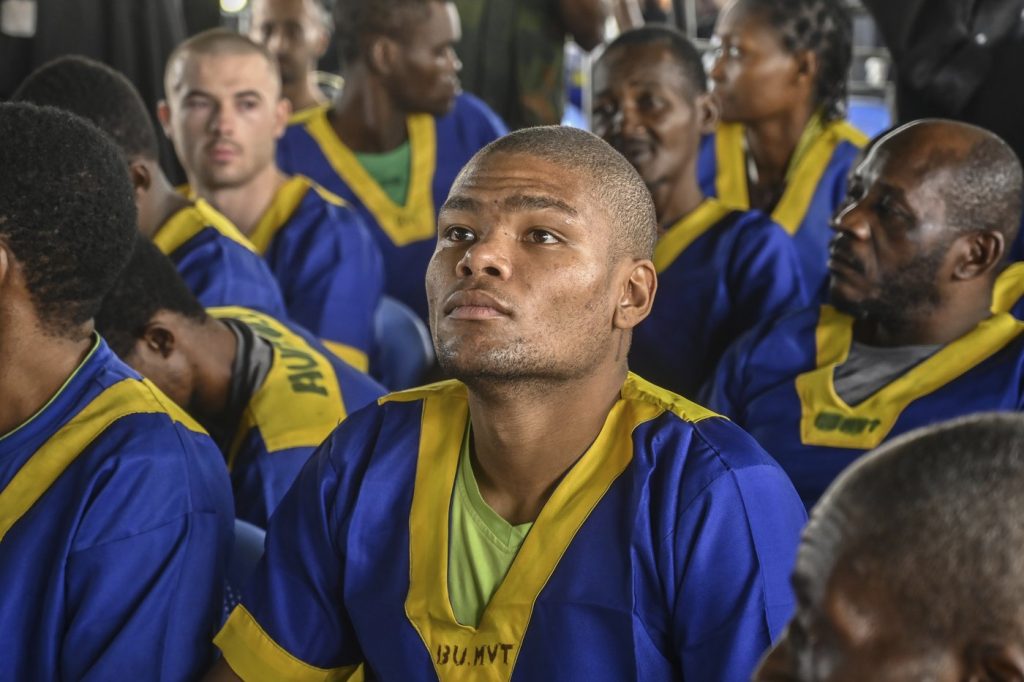
Military Court in Kinshasa Prosecutes Americans Alongside Dozens of Defendants Over Botched Coup”
KINSHASA, CONGO — Three Americans appeared before a military court in Kinshasa on Friday, accused of participating in last month’s coup attempt targeting the presidential palace and a close ally of President Felix Tshisekedi. The trial, held in an open-air court and broadcast live, also includes dozens of other defendants.
The Coup Attempt and Its Aftermath
The botched coup, led by the lesser-known opposition figure Christian Malanga, resulted in six deaths. Malanga, who live-streamed the attack on social media, was fatally shot after resisting arrest. His 21-year-old son, Marcel Malanga, a U.S. citizen, along with two other Americans, is among those facing charges that could lead to the death penalty, including terrorism and murder.
Court Proceedings and Translation Issues
During the initial court session, the defendants, including Marcel Malanga, requested translation services from French to English. However, the court-appointed translator and a subsequently chosen journalist struggled with accurate interpretation, causing frustration among the defendants.
Background and Personal Stories
Tyler Thompson Jr., 21, traveled to Africa from Utah, reportedly under the pretense of a vacation funded by the elder Malanga. Thompson’s family, who had no prior confirmation of his well-being, expressed relief upon learning of his appearance in court.
Benjamin Reuben Zalman-Polun, 36, another American on trial, has a history of legal issues in the U.S. and connections to Christian Malanga through a gold mining venture in Mozambique.
Prominent Belgian-Congolese researcher Jean-Jacques Wondo also appeared in court, though the evidence against him remains unclear. Human Rights Watch has called for the immediate release of Wondo if credible charges are not presented.
Concerns and Next Steps
Families of the American defendants are crowdfunding to support legal expenses and travel to Congo for future court dates, expressing concerns over their sons’ health conditions. The trial is set to continue next Friday, with the defendants facing severe charges under Congo’s military justice system.
Africa
Biden and Kenya’s Ruto Pledge to Protect Democracy in Africa and Beyond
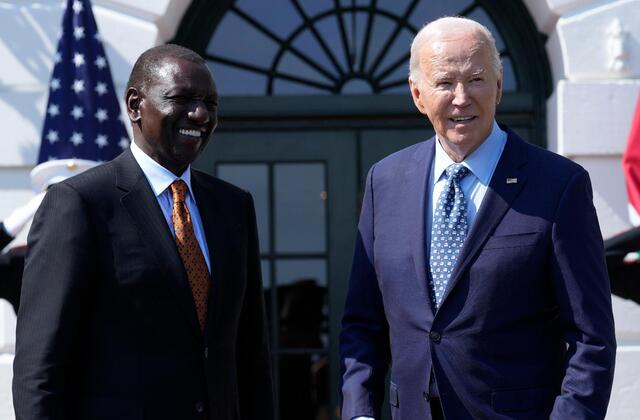
U.S. and Kenya Forge New Partnerships on Technology, Security, and Debt Relief
U.S. President Joe Biden welcomed Kenyan President William Ruto to the White House on Thursday for a state visit, marking the first visit by an African president to the White House since 2008. The two leaders pledged to protect democracy in Africa and beyond, emphasizing new partnerships in technology, security, and debt relief.
President Ruto’s visit underscores the importance of Africa, a continent with a population of 1 billion people and significant trade ties with China. Despite Africa ranking behind the wars in Ukraine and Gaza on Washington’s immediate agenda, the visit signals a strategic focus on strengthening relations with one of Africa’s strongest democracies.
During their meeting, Biden and Ruto discussed various initiatives aimed at bolstering democratic institutions, enhancing technological collaboration, and addressing debt relief. These efforts are part of a broader strategy to counterbalance China’s influence in Africa and to promote stability and prosperity on the continent.
President Biden highlighted the importance of Kenya’s leadership in promoting democratic values and security in the region. He praised President Ruto’s commitment to governance reforms and economic development, positioning Kenya as a pivotal partner for the United States in Africa.
President Ruto expressed gratitude for the support and emphasized Kenya’s dedication to upholding democratic principles and fostering economic growth. The two leaders agreed to continue working closely on shared goals and to expand their collaboration in key areas affecting both nations.
This state visit reflects a renewed commitment by the U.S. to engage with African nations on a deeper level, fostering partnerships that contribute to global stability and development.
Africa
Securing Data Flow: Africa’s Imperative for Cross-Border Information Exchange
Experts Advocate for Enhanced Data Security Measures to Foster Regional Cooperation
BY GUEST ESSAY:
Experts emphasize the need for Africa to establish secure mechanisms for cross-border data flow, highlighting the potential benefits for regional development and cooperation. This article delves into the challenges, opportunities, and recommendations put forth by experts to ensure the safe and efficient exchange of data across African borders.
Analysis:
The call for Africa to forge a path for secure data flow across borders reflects the continent’s growing recognition of the importance of digital connectivity and information exchange in driving economic growth and regional integration. To understand the significance of this imperative, it is essential to delve into the challenges, opportunities, and recommendations put forth by experts in the field.
Challenges:
- Data Privacy and Protection: One of the foremost challenges is ensuring the privacy and protection of data as it traverses across borders. Weak regulatory frameworks and inadequate cybersecurity measures leave data vulnerable to breaches and misuse, undermining trust and hindering collaboration.
- Infrastructure and Connectivity: Limited infrastructure and connectivity gaps pose significant barriers to seamless data exchange. Uneven access to high-speed internet and reliable telecommunications networks inhibits the efficient transfer of data, particularly in remote or underserved areas.
- Legal and Regulatory Frameworks: Inconsistent legal and regulatory frameworks across African countries create complexities and uncertainties for cross-border data flows. Harmonizing laws and standards related to data protection, privacy, and cybersecurity is essential to facilitate smooth information exchange while safeguarding individual rights and interests.
Opportunities:
- Regional Integration and Cooperation: Enhancing cross-border data flow fosters regional integration and cooperation, enabling countries to leverage shared resources and expertise for mutual benefit. By breaking down silos and promoting collaboration, Africa can unlock new opportunities for innovation, economic development, and social progress.
- Digital Transformation: Embracing secure data flow accelerates digital transformation efforts across various sectors, including healthcare, education, finance, and governance. By harnessing the power of data-driven technologies, African nations can drive efficiency, transparency, and inclusivity in service delivery and decision-making processes.
- Entrepreneurship and Innovation: Access to secure and reliable data fuels entrepreneurship and innovation, empowering startups and SMEs to develop new products, services, and business models. By fostering a conducive environment for digital entrepreneurship, Africa can unleash its vast potential for economic growth and job creation.
Recommendations:
- Strengthen Cybersecurity Measures: Investing in robust cybersecurity infrastructure and capacity-building initiatives is essential to mitigate cyber threats and safeguard sensitive data from malicious actors.
- Harmonize Regulatory Frameworks: African countries must work towards harmonizing legal and regulatory frameworks governing data protection, privacy, and cybersecurity to facilitate seamless cross-border data flow while upholding individual rights and sovereignty.
- Promote Digital Literacy: Enhancing digital literacy and awareness among citizens, businesses, and policymakers is crucial to ensure responsible data usage and foster a culture of cybersecurity and data protection.
In conclusion, the imperative for Africa to establish secure data flow across borders presents both challenges and opportunities for the continent’s development. By addressing regulatory gaps, enhancing cybersecurity measures, and promoting regional cooperation, Africa can unlock the transformative potential of data-driven innovation and drive inclusive growth and prosperity across the continent.
Africa
Tropical Cyclone Threatens to Exacerbate Humanitarian Crisis in Flooded East Africa
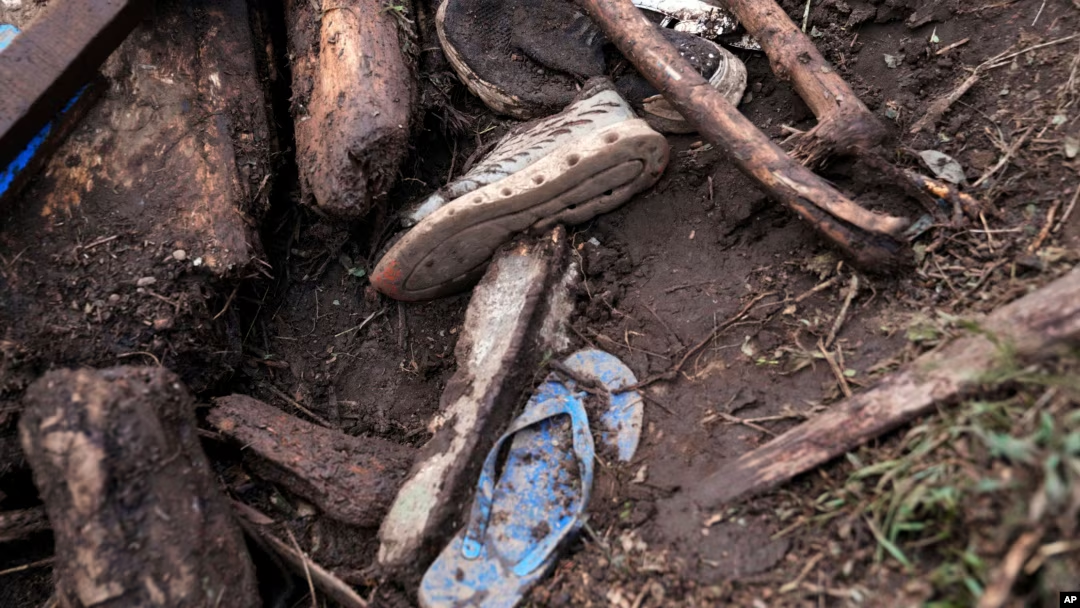
As a tropical cyclone looms over flooded East Africa, the region faces the prospect of further exacerbating an already dire humanitarian crisis. The convergence of natural disasters compounds the challenges faced by communities already grappling with widespread flooding and displacement.
The impending threat of a tropical cyclone adds another layer of complexity to the ongoing humanitarian crisis in flooded East Africa. With communities already reeling from the devastating impact of widespread flooding, the arrival of a cyclone amplifies the urgency for coordinated response efforts to mitigate the potential loss of life and further displacement.
Vulnerable populations in East Africa, including those displaced by flooding and living in makeshift shelters, are particularly at risk in the face of a tropical cyclone. The combination of heavy rains, strong winds, and potential storm surges heightens the likelihood of widespread destruction of infrastructure, disruption of essential services, and loss of livelihoods, further exacerbating the suffering of affected communities.
The arrival of a tropical cyclone presents significant challenges for humanitarian response efforts in flooded East Africa. Access to affected areas may be hindered by impassable roads, damaged infrastructure, and adverse weather conditions, limiting the delivery of life-saving aid and assistance to those in need. Coordination among local authorities, humanitarian organizations, and international agencies becomes paramount to ensure an effective and timely response to the unfolding crisis.
In light of the impending cyclone, there is an urgent need for enhanced preparedness and resilience-building measures across East Africa. Early warning systems, evacuation plans, and contingency measures must be put in place to mitigate the potential impact of the cyclone on vulnerable communities. Investment in resilient infrastructure and disaster risk reduction initiatives can help mitigate the long-term effects of recurrent flooding and extreme weather events in the region.
The looming threat of a tropical cyclone in flooded East Africa underscores the importance of international support and solidarity in addressing the complex challenges facing the region. The global community must stand in solidarity with affected populations, providing financial assistance, technical expertise, and logistical support to bolster local response efforts and ensure the protection of lives and livelihoods in the face of natural disasters.
As East Africa braces for the arrival of a tropical cyclone amidst ongoing flooding, the region finds itself at a critical juncture in its humanitarian response efforts. By prioritizing preparedness, resilience-building, and international collaboration, stakeholders can work together to navigate the challenges posed by the cyclone and mitigate its impact on vulnerable communities, ultimately fostering a more resilient and sustainable future for all in East Africa.
Africa
Diamonds Shine Bright: Botswana’s Resilient Industry in the Face of Global Turmoil

Amidst Uncertainty, Botswana’s Diamond Sector Sees Renewed Optimism and Growth Prospects
Botswana’s diamond industry is experiencing a resurgence, defying global economic uncertainty. As one of the world’s leading producers of diamonds, Botswana’s success highlights the resilience and potential of its mineral sector in challenging times.

In a world marked by economic volatility, Botswana’s diamond industry stands as a beacon of stability and growth. Despite global uncertainty, Botswana’s diamonds continue to sparkle, offering a glimmer of hope for its economy and future prospects.
Botswana, a key player in the global diamond market, is experiencing a significant boost in its diamond industry. This surge in activity comes at a time when many industries are grappling with the challenges posed by the ongoing pandemic and geopolitical tensions.
The resilience of Botswana’s diamond sector can be attributed to several factors, including robust demand for diamonds in key markets, strategic partnerships with leading industry players, and the country’s commitment to sustainable mining practices.
As Botswana’s diamond industry thrives, it serves as a testament to the country’s ability to adapt and innovate in the face of adversity. With a rich abundance of natural resources and a supportive regulatory environment, Botswana is well-positioned to capitalize on emerging opportunities in the global diamond trade.
While challenges remain, including fluctuating commodity prices and evolving consumer preferences, Botswana’s diamond industry is poised for continued growth and success in the years to come. As a cornerstone of the country’s economy, diamonds will continue to play a vital role in Botswana’s development and prosperity.
Africa
Margaret Busby: Championing African Women’s Writing and Redefining Literary Landscapes
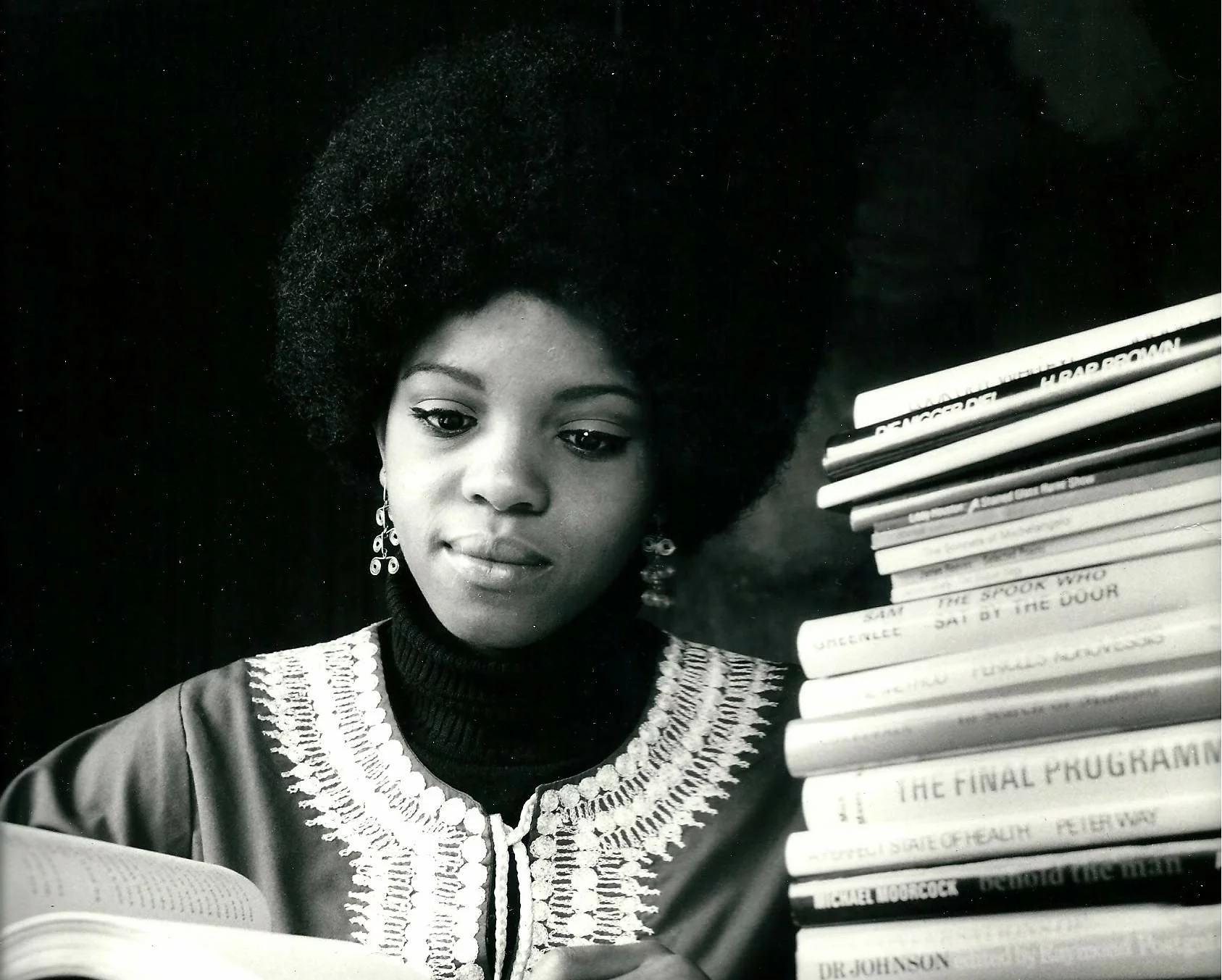
Margaret Busby stands as a towering figure in the world of literature, renowned for her pioneering efforts in amplifying the voices of African women writers. As a Ghanaian publisher, editor, and advocate, Busby played a pivotal role in reshaping the literary landscape, bringing African women’s writing to the forefront of global consciousness.
Early Life and Education
Born in Ghana in 1944, Margaret Busby spent her formative years in Accra before moving to England for her education. At just 20 years old, she made history as the youngest and first black woman to establish a publishing company in the UK, Allison & Busby, alongside Clive Allison in 1967. This bold venture marked the beginning of Busby’s lifelong dedication to championing diverse voices in literature.
Breaking Barriers in Publishing
At a time when African literature, particularly that of women, was marginalized in mainstream publishing, Busby’s commitment to amplifying these voices was revolutionary. Allison & Busby became a platform for emerging African writers, providing a space for their stories to be heard and celebrated on a global scale.
Elevating African Women Writers
Busby’s impact on African women’s writing cannot be overstated. Through her publishing endeavors, she introduced the world to groundbreaking works by authors such as Buchi Emecheta, Ama Ata Aidoo, and Nawal El Saadawi, among others. These writers defied stereotypes and challenged prevailing narratives, offering nuanced perspectives on African identity, culture, and womanhood.
Advocacy and Recognition
In addition to her work as a publisher, Busby has been a vocal advocate for diversity and inclusion in literature. She has served on numerous literary panels and advisory boards, championing initiatives to promote African literature and support emerging writers. Busby’s contributions have been widely recognized, earning her prestigious honors such as the Order of the British Empire (OBE) for services to literature.
Legacy and Inspiration
Margaret Busby’s legacy extends far beyond the realm of publishing. Her unwavering dedication to amplifying marginalized voices and reshaping literary landscapes has paved the way for generations of African women writers to follow. As a trailblazer and visionary, Busby continues to inspire future generations to embrace their own voices and stories, ensuring that African literature remains vibrant, diverse, and essential in the global literary canon.
Conclusion
In a world where voices of African women writers were often silenced or overlooked, Margaret Busby emerged as a beacon of hope and change. Through her pioneering efforts in publishing and advocacy, she not only put African women’s writing on the map but also reshaped the narrative of African literature itself. As we celebrate Busby’s remarkable contributions, we are reminded of the transformative power of literature to challenge, inspire, and unite us all.
Africa
Sweet Deception: Examining the Impact of Sugar in Baby Food and the Responsibility of Nestlé in Africa

By Kasim Abdulkadir:
The presence of sugar in baby food has raised significant concerns worldwide, particularly in Africa where malnutrition and related health issues are prevalent. Nestlé, as a leading producer of baby food products, faces scrutiny over its role in perpetuating the sugar content in these products. This analysis delves into the implications of sugar in baby food, the potential risks to infant health, and the ethical responsibility of Nestlé in Africa.

Across Africa, malnutrition remains a pressing issue, with millions of infants and children facing stunted growth, developmental delays, and other health complications. While efforts have been made to address nutritional deficiencies, the prevalence of sugar-laden baby foods poses a new challenge to infant health.
Sugar serves as a common ingredient in many commercial baby food products, contributing to their taste appeal and palatability. However, excessive sugar consumption in infancy has been linked to various health problems, including obesity, diabetes, and dental caries. Furthermore, early exposure to sweet tastes may shape infants’ food preferences and increase their likelihood of consuming sugary foods later in life.
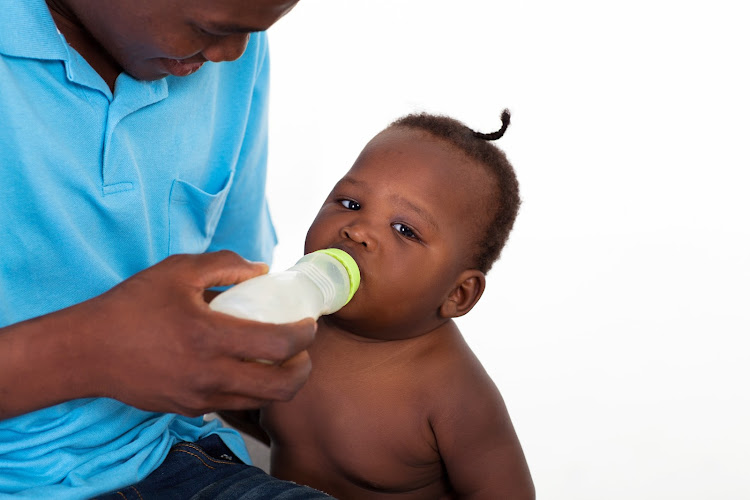
As a leading manufacturer of baby food products, Nestlé plays a significant role in shaping infant feeding practices and dietary patterns in Africa. While the company has taken steps to reduce sugar content in some of its products, concerns persist regarding the overall nutritional quality of its offerings and the marketing strategies employed to promote them.
Nestlé’s marketing practices, particularly in low- and middle-income countries, have come under scrutiny for potentially misleading parents and caregivers about the nutritional value of its baby food products. Moreover, the company’s aggressive marketing tactics and distribution channels may disproportionately target vulnerable populations, exacerbating health disparities and contributing to the global burden of malnutrition.
In light of these concerns, there is a growing call for Nestlé to be held accountable for its role in perpetuating the sugar content in baby food and its impact on infant health in Africa. This includes calls for greater transparency in labeling, stricter regulation of marketing practices, and investments in promoting breastfeeding and culturally appropriate infant feeding practices.
In conclusion, the presence of sugar in baby food poses a significant threat to infant health in Africa, exacerbating existing nutritional challenges and contributing to long-term health disparities. As a key player in the baby food industry, Nestlé has a moral and ethical obligation to prioritize the health and well-being of infants and children over profit margins. By taking proactive steps to reduce sugar content, promote healthier alternatives, and engage with stakeholders in the public health community, Nestlé can help address the root causes of malnutrition and foster a brighter future for Africa’s youngest citizens.
Africa
A Deep Dive into the Roots of Sudan’s Civil War and Its Impact on Regional Stability
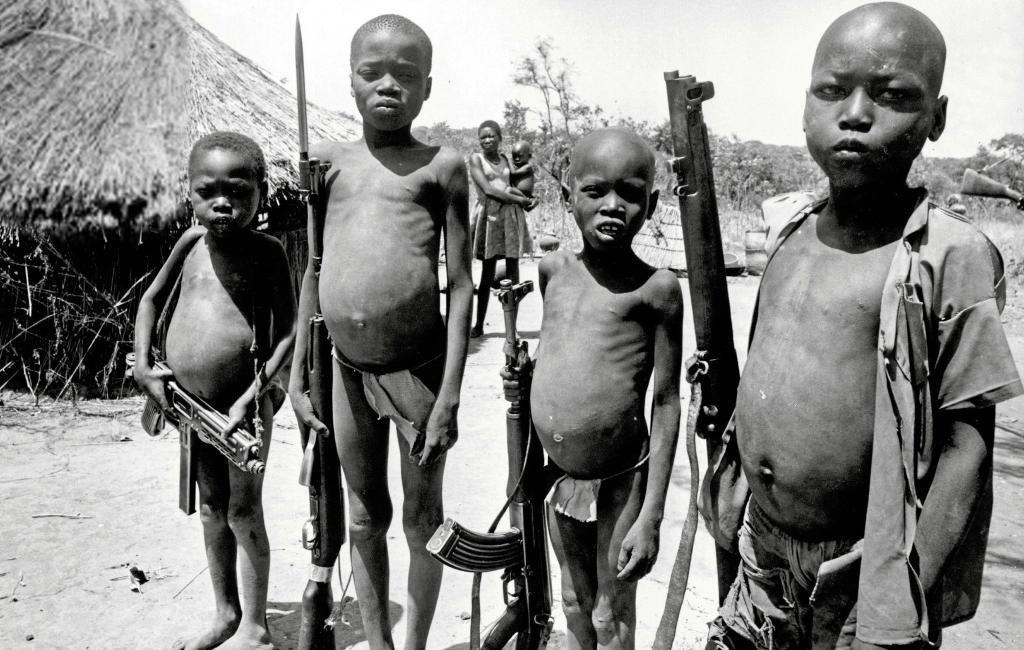
Uncover the geopolitical, socioeconomic, and historical factors driving the unrest, and consider its far-reaching implications for regional stability and global dynamics.
By Kasim Abdulkadir:
Sudan’s Civil War: Unraveling Historical Identity Favoritism and Its Global Impact
Sudan’s ongoing civil strife finds its roots in a complex web of historical favoritism towards Arab and Islamic identity, a narrative deeply embedded in the country’s tumultuous past. The ramifications of this identity-based divide extend far beyond Sudan’s borders, impacting regional stability and global dynamics in profound ways.
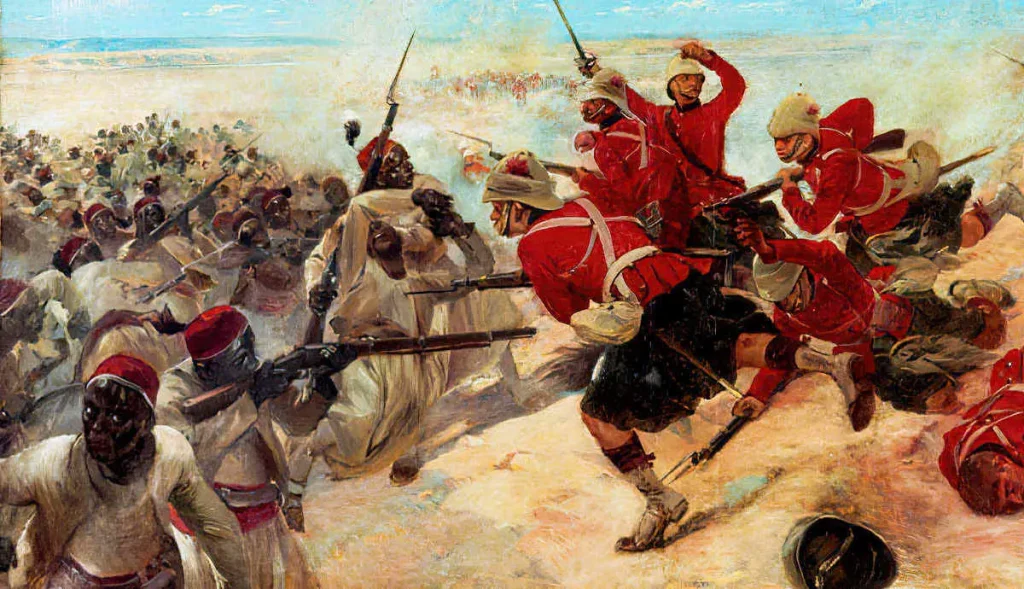
Sudan’s history is marked by a legacy of colonialism and internal divisions, exacerbated by a history of favoritism towards Arab and Islamic identity. The Arabization policies of successive regimes marginalized non-Arab ethnic groups, fueling resentment and sparking armed resistance. The imposition of Sharia law further deepened societal fractures, exacerbating tensions and laying the groundwork for prolonged conflict.
Sudan’s civil war has significant geopolitical implications, with neighboring countries and international actors vying for influence in the region. The struggle for control over Sudan’s vast natural resources, including oil reserves, has heightened tensions and drawn external powers into the fray. Geopolitical rivalries intersect with ethnic and religious fault lines, further complicating efforts to resolve the conflict and restore stability.
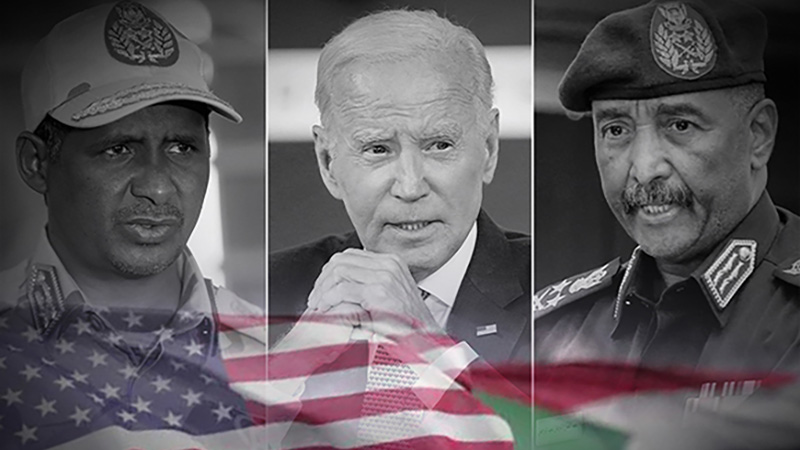
The civil war has taken a devastating toll on Sudan’s economy and social fabric, exacerbating poverty, displacement, and humanitarian crises. Economic disparities between regions and ethnic groups fuel grievances and perpetuate cycles of violence. Moreover, the displacement of populations exacerbates resource scarcity and strains social services, creating fertile ground for further unrest.
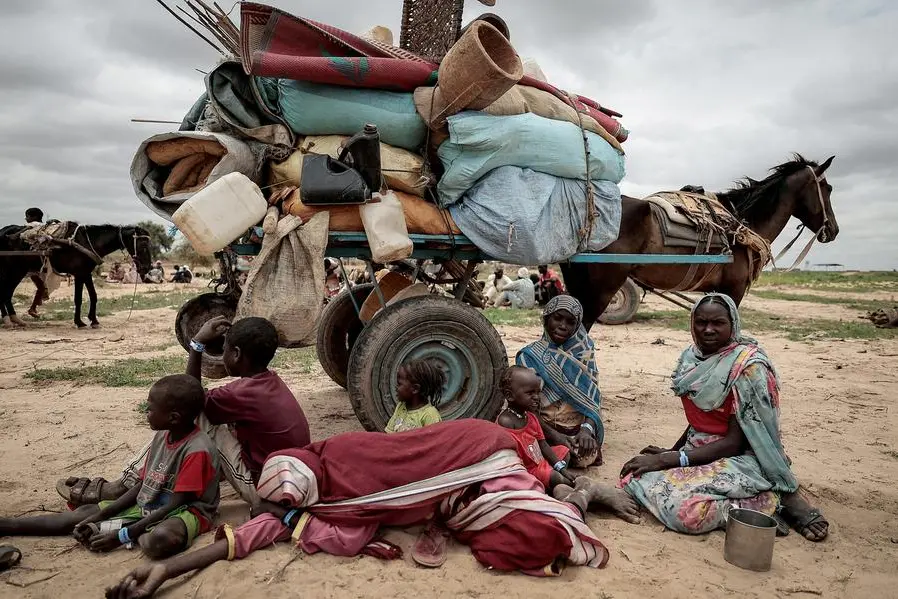
The resolution of Sudan’s civil war holds profound implications for regional stability and global security. A sustainable peace settlement could pave the way for economic development, regional integration, and enhanced cooperation. However, failure to address underlying grievances and structural inequalities risks perpetuating instability and exacerbating existing tensions, with potential spillover effects across the region.
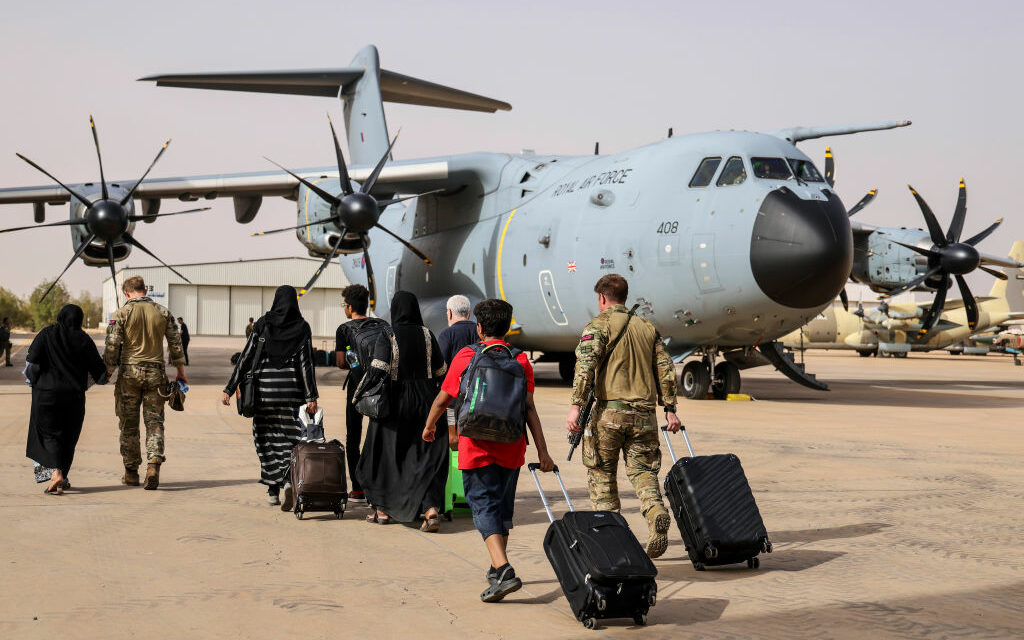
In conclusion, Sudan’s civil war is a complex and multifaceted conflict rooted in historical favoritism towards Arab and Islamic identity. Its resolution requires a comprehensive approach that addresses the underlying drivers of the conflict, promotes inclusive governance, and fosters reconciliation among Sudan’s diverse ethnic and religious communities. The international community must actively support efforts to achieve a sustainable peace settlement, recognizing the far-reaching implications of Sudan’s internal dynamics on regional stability and global security.
-
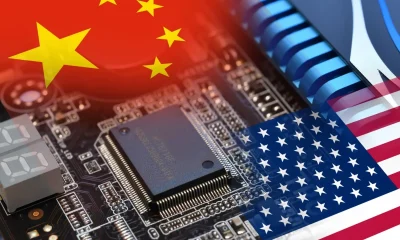
 Espionage1 day ago
Espionage1 day agoSilicon Valley steps up screening on Chinese employees to counter espionage
-
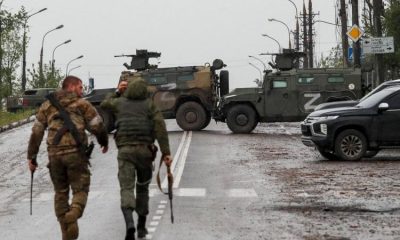
 Somali Reading3 months ago
Somali Reading3 months agoWax ka ogow jeneraallada sarsare ee Ruushka looga dilay Ukraine
-

 Editor's Pick3 months ago
Editor's Pick3 months agoUnderstanding Metabolism: The Key to Unlocking Your Body’s Energy Potential
-

 Entertainment3 months ago
Entertainment3 months agoHow to stream spy thriller Argylle in the UK
-

 Editor's Pick3 months ago
Editor's Pick3 months agoIDF and Mossad Greenlight Plans for Strike on Iran Amid Escalating Tensions
-

 Crime3 months ago
Crime3 months agoInvestigating the Arrest of Ugbaad Aragsan: Unveiling Cultural Clashes and Political Motives in Somaliland
-

 Analysis3 months ago
Analysis3 months agoUkraine’s 1-ton payload drones can help retake Crimea as Kyiv seeks to destroy bridge
-
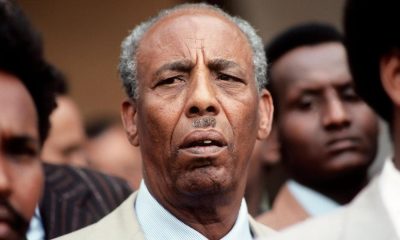
 Editor's Pick2 months ago
Editor's Pick2 months agoMohamed Siad Barre: Architect of Atrocity and Somalia’s Descent into Darkness

